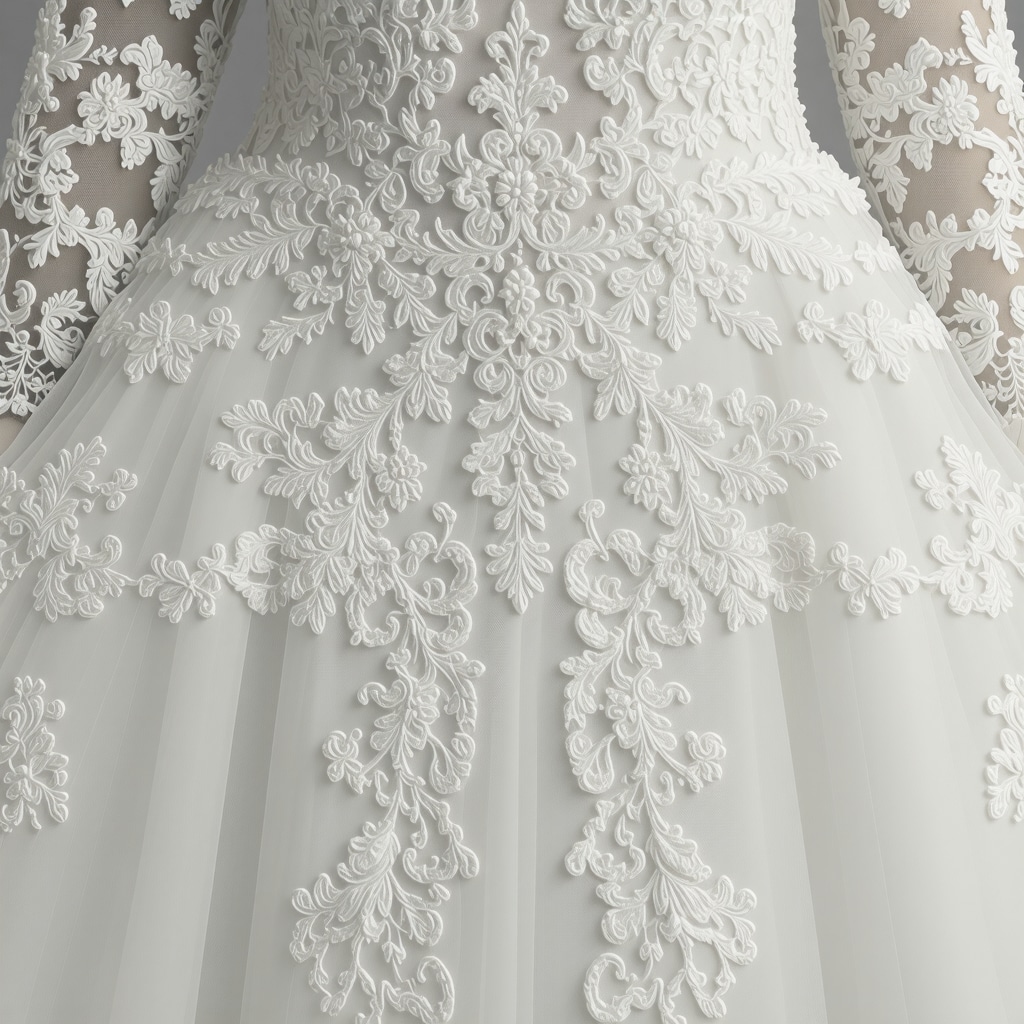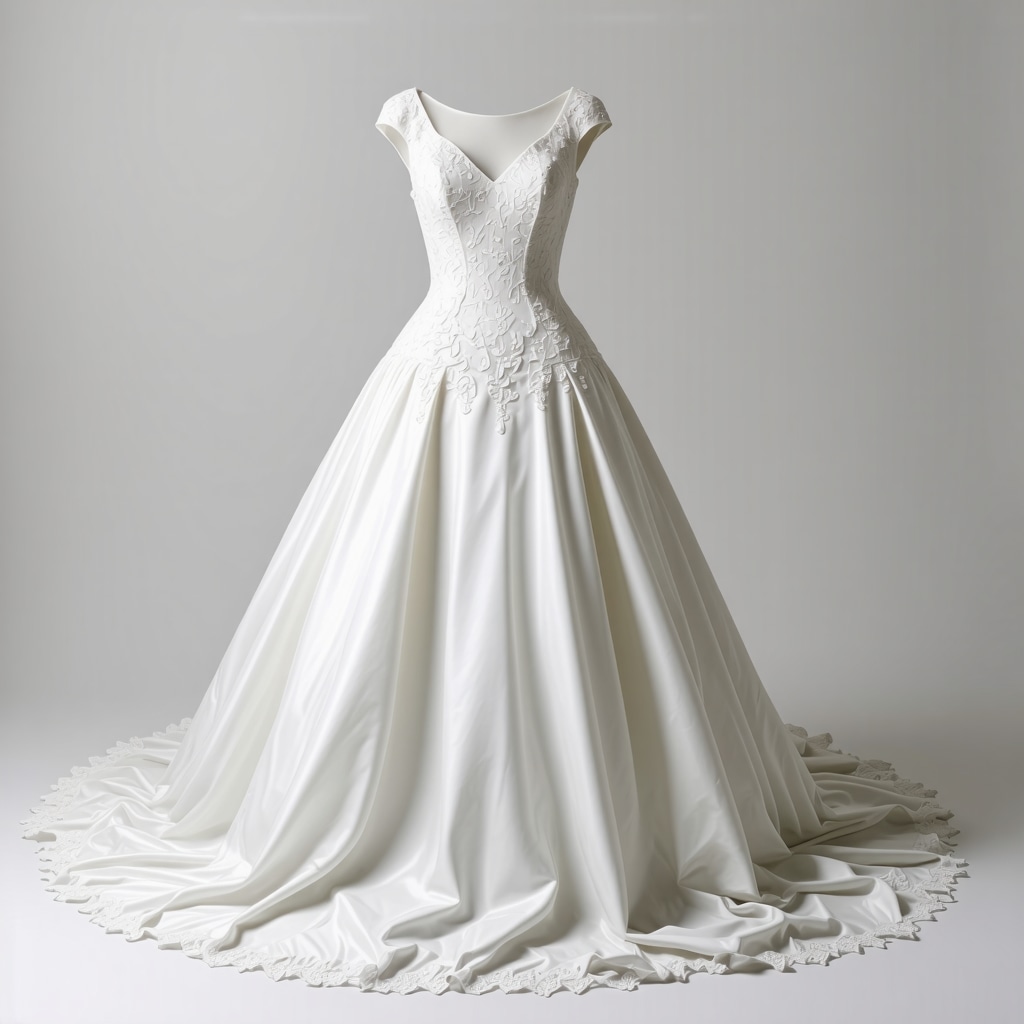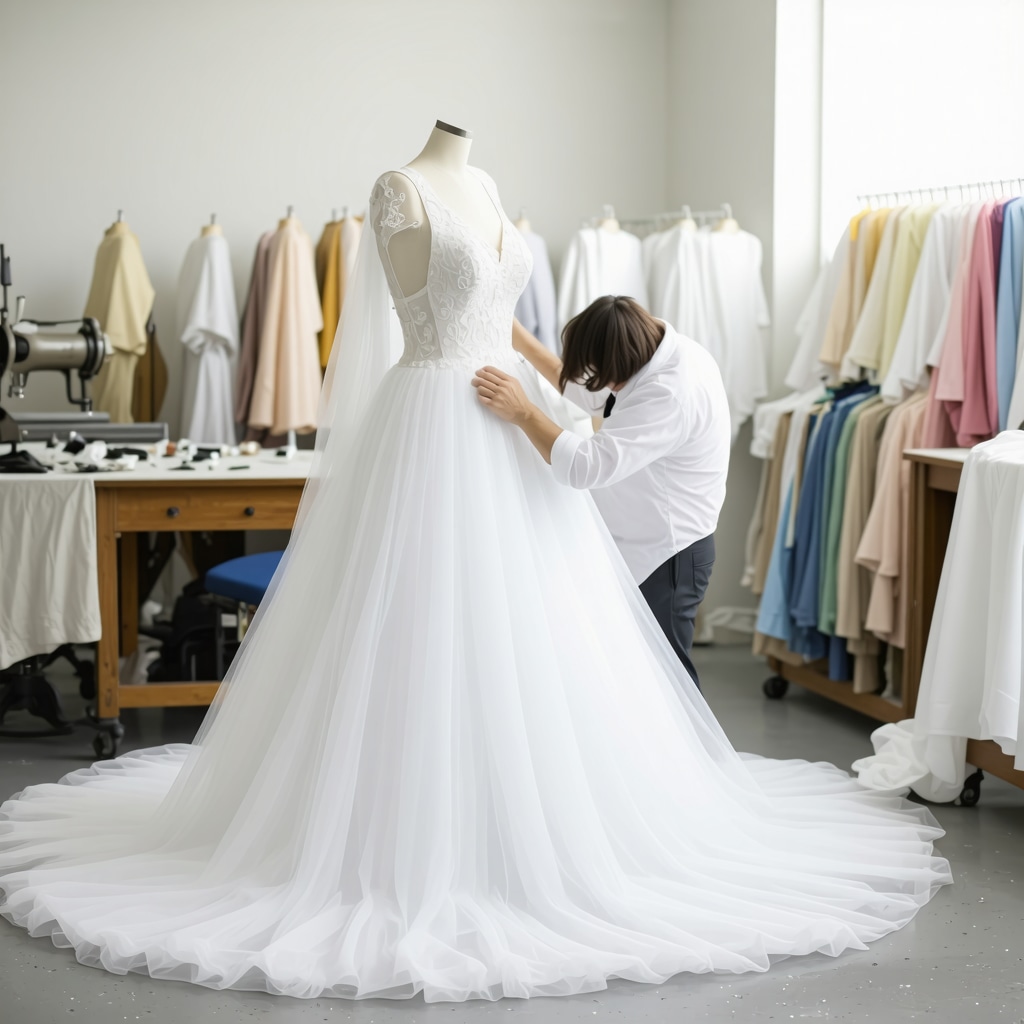Advanced Restoration Techniques Elevating Wedding Dress Care in Tampa
Wedding dresses are not mere garments; they are treasured heirlooms embodying emotional and material value that often transcend generations. In Tampa, the evolution of wedding dress restoration services reflects an intricate blend of textile science, conservation artistry, and bespoke craftsmanship. These services extend beyond routine cleaning to include meticulous fabric repair, stain mitigation, and historical preservation, ensuring your cherished gown retains its original splendor and structural integrity.
Understanding the Complexities of Wedding Dress Fabric Degradation
Expert restoration demands an acute understanding of the diverse materials—silk, lace, tulle, organza—that compose bridal gowns. Each fabric exhibits unique vulnerabilities such as fiber weakening, discoloration from environmental exposure, or damage from previous cleaning attempts. Tampa’s top restoration specialists employ advanced diagnostic techniques, including microscopic fiber analysis and pH testing, to tailor restoration protocols that arrest degradation while respecting the gown’s provenance.
How Do Professional Restoration Services Address Intricate Stains and Structural Damage?
Stains like wine, grass, or perspiration pose significant challenges due to their chemical composition and fabric interaction. Professionals in Tampa utilize targeted enzymatic treatments combined with gentle solvent applications to dissolve stains without compromising delicate fibers. Structural damages such as seam tears or beadwork loss are restored using precision hand-stitching and fabric patching methods that emulate original craftsmanship. This level of restoration requires both technical expertise and an artistic sensibility, often showcased in professional wedding dress restoration service in Tampa.
The Role of Eco-Conscious Restoration in Tampa’s Bridal Industry
Given the increasing demand for sustainable practices, Tampa’s restoration services integrate eco-friendly solvents and biodegradable detergents that minimize environmental impact while preserving fabric quality. This conscientious approach aligns with global textile conservation standards and appeals to environmentally aware brides seeking long-lasting preservation solutions. Learn more about green cleaning methods at eco-friendly wedding dress care in Tampa.
Integrating Preservation and Restoration: Preparing Your Dress for Future Generations
Restoration is often a precursor to long-term preservation. Tampa’s experts recommend combining restoration with museum-quality preservation techniques such as acid-free wrapping and climate-controlled storage to safeguard dresses against future deterioration. This holistic methodology is vital for brides wishing to pass their gowns as legacy pieces. Detailed guidance is available in the museum-quality wedding dress preservation in Tampa resource.
Expert Insight Invitation: How Can Brides Contribute to Their Dress’s Longevity Post-Restoration?
We invite readers to explore the nuanced aftercare protocols that significantly enhance the lifespan of restored gowns. Sharing personal experiences or professional advice on post-restoration handling, storage, and periodic maintenance enriches the collective expertise. Engage with our community by visiting the contact page and contribute your insights.
For in-depth scientific perspectives on textile conservation, consider the seminal work published by the American Institute for Conservation, which articulates best practices for fabric restoration and preservation (AIC Textile Care Guidelines).
Cutting-Edge Technologies Revolutionizing Wedding Dress Care in Tampa
The bridal industry in Tampa has embraced innovative technologies that redefine the standards of wedding dress cleaning and preservation. Among these advancements are laser stain removal systems, which enable precise targeting of discolorations without compromising fabric integrity. Additionally, ultrasonic cleaning technology utilizes high-frequency sound waves to delicately dislodge particles embedded within intricate lace and beadwork, ensuring a thorough yet gentle cleanse.
These methods complement traditional expertise, offering brides unparalleled outcomes in dress restoration and longevity. Professionals trained in these technologies provide tailored solutions, adapting processes to the unique material compositions of each gown.
Sustainability Meets Sophistication: Tampa’s Eco-Friendly Preservation Models
Environmental responsibility continues to shape Tampa’s wedding dress care landscape. Eco-conscious brides increasingly seek services that combine effective preservation with a low ecological footprint. Tampa’s leading specialists integrate sustainable materials such as acid-free, recyclable preservation boxes and utilize organic, biodegradable cleaning agents. This approach not only protects delicate textiles but also aligns with broader environmental ethics.
Moreover, climate-controlled storage facilities powered by renewable energy sources offer optimal conditions for long-term preservation while reducing carbon emissions. These holistic eco-friendly practices are essential for brides who prioritize both elegance and environmental stewardship.
What Emerging Trends Are Shaping Wedding Dress Preservation Strategies in Tampa?
Exploring future directions in wedding dress care reveals an exciting intersection of technology, sustainability, and personalization. Innovations such as nanotechnology-based fabric treatments promise enhanced resistance to stains and UV damage without altering the dress’s tactile qualities. Additionally, digital documentation and 3D scanning create virtual archives, enabling precise replication or restoration even decades later.
Personalized preservation plans, designed through AI-driven analysis of fabric conditions and historical data, allow bespoke care recommendations tailored to each bride’s unique gown. Tampa’s experts remain at the forefront of these developments, continually refining their methodologies to meet evolving client expectations.
For further insights into the scientific advancements informing these trends, consult the comprehensive textile conservation research by the Textile Conservation Center at the University of Glasgow, which offers authoritative guidelines on fabric longevity and innovative preservation techniques (University of Glasgow Textile Conservation Research).
Enhancing Your Wedding Dress Care: Expert Tips and Community Engagement
Engagement with knowledgeable professionals is vital for optimal wedding dress preservation. Tampa brides are encouraged to leverage local expert resources such as expert wedding dress cleaning services in Tampa to receive personalized consultations and high-caliber care.
We invite readers to share their experiences, tips, or questions about wedding dress care in the Tampa Bay area. Your contributions enrich the community’s collective wisdom and help future brides make informed decisions. Join the conversation by commenting below or sharing this article with fellow brides-to-be.
Harnessing Nanotechnology and AI for Tailored Wedding Dress Conservation in Tampa
As Tampa’s bridal restoration landscape matures, the integration of nanotechnology and artificial intelligence (AI) is revolutionizing personalized dress care. Nanotechnology-based fabric coatings offer unprecedented protection by forming invisible, breathable barriers against moisture, oils, and ultraviolet radiation, significantly extending the lifespan of delicate silks and chiffons. These nano-coatings maintain the tactile softness and aesthetic brilliance of the gown without introducing chemical residues or altering weave structure.
Simultaneously, AI-driven diagnostic tools analyze high-resolution imagery and environmental data to provide bespoke preservation plans. Such systems evaluate fiber condition, environmental exposure patterns, and historical restoration records to forecast degradation trajectories and suggest optimal interventions. This synergy of advanced material science and machine learning empowers Tampa specialists to deliver hyper-customized care strategies aligned with each bride’s unique garment history and future intentions.
What Are the Limitations and Ethical Considerations of Using AI in Wedding Dress Restoration?
While AI tools enhance precision, their reliance on data quality and interpretive algorithms raises concerns. Erroneous inputs could misguide treatment plans, risking irreversible damage. Moreover, ethical debates arise regarding the potential loss of artisanal craftsmanship and the depersonalization of heritage textiles. Tampa’s leading conservators advocate for AI as an adjunct, not a replacement, emphasizing that human expertise remains paramount in interpreting nuanced fabric narratives and making context-sensitive decisions.
Innovative Biodegradable Preservation Materials: Merging Sustainability with Longevity
In line with Tampa’s eco-conscious ethos, recent breakthroughs have introduced biodegradable yet durable preservation materials. These include acid-free wrapping papers infused with antimicrobial agents derived from natural extracts, which inhibit mold and bacterial growth during long-term storage. Additionally, recyclable preservation boxes now incorporate plant-based polymers that offer structural integrity equivalent to conventional plastics but decompose harmlessly post-use.
Such innovations represent a paradigm shift, balancing environmental responsibility with rigorous conservation standards. Brides and collectors in Tampa benefit from these advancements by ensuring their gowns are protected in an ecologically sound manner without compromising preservation quality.
Multispectral Imaging and Digital Archiving: Future-Proofing Your Wedding Dress Legacy
Emerging multispectral imaging technologies capture detailed data beyond visible light, revealing hidden fabric weaknesses, previous restorations, and subtle stains invisible to the naked eye. Tampa’s top conservators employ these insights to create comprehensive digital archives, including 3D scans and condition reports. These virtual records facilitate precise future restorations, insurance appraisals, and even allow for augmented reality presentations to share the gown’s story across generations.
Moreover, digital archiving supports proactive preservation by enabling remote monitoring of environmental conditions and garment status, facilitating timely interventions before damage accrues.

How Can Brides Collaborate with Tampa Experts to Leverage Digital Technologies for Dress Preservation?
Brides interested in integrating digital technologies into their dress care regimen should engage early with Tampa’s specialized conservators. Collaborative consultations help define preservation goals, select appropriate imaging modalities, and establish digital maintenance schedules. Such partnerships enhance transparency and empower brides to actively participate in the stewardship of their wedding gowns, transforming preservation into a shared journey rather than a solitary task.
For comprehensive guidelines on integrating digital tools with textile conservation, the Textile Conservation Centre at the University of Glasgow provides an authoritative resource detailing multispectral imaging applications and ethical digitization practices (University of Glasgow Textile Conservation Research).
Explore these transformative preservation strategies with Tampa’s expert community to ensure your wedding dress remains a vibrant, cherished heirloom well beyond your special day. Engage with our specialists and share your questions or experiences through our contact page to deepen your knowledge and contribute to this evolving field.
Decoding the Synergy of Advanced Materials and AI in Textile Longevity
The convergence of nanomaterials and artificial intelligence in Tampa’s wedding dress care elevates preservation from reactive maintenance to proactive stewardship. Nanomaterial coatings not only shield delicate fibers from ultraviolet degradation and moisture-induced weakening but also maintain fabric breathability and suppleness, crucial for maintaining bridal gown authenticity. Meanwhile, AI algorithms assimilate multispectral imaging data alongside environmental sensor inputs to predict degradation patterns with unprecedented accuracy, enabling preemptive interventions tailored to individual fabric compositions and usage histories.
Ethical Dimensions and Practical Boundaries of AI Integration in Conservation
While AI-driven diagnostics offer unparalleled granularity in fabric analysis, the human element remains indispensable. Ethical considerations encompass the transparency of AI decision-making processes and the preservation of artisanal handcrafting traditions intrinsic to heritage textiles. Tampa’s conservators emphasize a hybrid approach, wherein AI augments but does not replace the nuanced judgment and tactile expertise of restoration professionals, ensuring that interventions honor the gown’s historical and sentimental narratives.
Eco-Smart Preservation: Innovating with Biodegradable and Antimicrobial Materials
Innovations in biodegradable preservation materials align Tampa’s bridal care with global sustainability imperatives. The integration of natural antimicrobial agents in acid-free storage wraps not only mitigates microbial colonization but also reduces reliance on synthetic chemical preservatives. These materials decompose harmlessly post-use, minimizing landfill contributions without sacrificing the structural integrity necessary for long-term gown protection.
Harnessing Multispectral Imaging and Digital Archiving for Enduring Legacy Management
Multispectral imaging transcends conventional visual assessments by revealing subsurface textile anomalies and past repair interventions invisible to the naked eye. Tampa’s conservators utilize these insights to construct comprehensive digital archives comprising 3D models and detailed condition reports. Such archives facilitate precise future restorations, enable insurance documentation, and support augmented reality showcases that narrate the gown’s provenance across generations.

How Can Brides Collaboratively Leverage Tampa’s Digital Technologies for Personalized Dress Preservation?
To maximize the benefits of digital preservation tools, Tampa brides should engage early with conservation experts to co-develop bespoke care plans. This collaboration encompasses selecting appropriate imaging modalities, scheduling periodic digital condition assessments, and establishing environmental monitoring protocols. Active participation in this process empowers brides to become custodians of their gowns’ legacies rather than passive recipients of preservation services.
Call to Action: Engage with Tampa’s Leading Textile Conservation Experts
Embrace the forefront of wedding dress preservation by connecting with Tampa’s pioneering specialists who integrate cutting-edge technology with sustainable practices. Whether you seek advanced restoration, eco-conscious storage, or digital archival solutions, expert guidance is just a consultation away. Visit our contact page to begin your personalized preservation journey and ensure your wedding gown remains a luminous heirloom for generations.
For authoritative scientific insights, explore the Textile Conservation Centre’s comprehensive research on digital conservation and sustainable materials at the University of Glasgow Textile Conservation Research.
Expert Insights & Advanced Considerations
Synergizing Nanotechnology with Traditional Restoration Techniques
While nanotechnology-based fabric coatings provide a revolutionary barrier against environmental damage, their optimal deployment requires careful integration with time-honored restoration practices. Tampa’s leading conservators emphasize that preserving tactile authenticity and fabric breathability demands a balance between innovative materials and artisanal handcraftsmanship, ensuring that the gown’s original character is maintained alongside enhanced longevity.
AI as an Augmentative Tool, Not a Replacement for Expertise
The implementation of AI-driven diagnostics in wedding dress care offers unprecedented predictive accuracy for degradation patterns and tailored interventions. However, experts caution against overreliance on algorithmic outputs. Human judgment remains indispensable in interpreting subtle textile nuances and ethical considerations, underscoring a hybrid model where AI informs but does not supplant expert decision-making.
Environmental Stewardship Through Biodegradable Preservation Materials
Adopting biodegradable storage solutions infused with natural antimicrobial agents illustrates Tampa’s commitment to sustainable bridal gown care. These materials not only mitigate microbial threats but also reduce ecological footprints, aligning preservation efforts with global environmental ethics without compromising conservation efficacy.
Digital Archiving as a Legacy Management Strategy
Multispectral imaging and comprehensive digital documentation enable precise condition monitoring and facilitate future restorations with scientific rigor. Tampa’s specialists advocate for collaborative bride-conservator partnerships to customize digital preservation plans, transforming garment care into an interactive stewardship journey.
Personalized Preservation Plans Foster Longevity and Emotional Connection
Tailoring preservation protocols through AI-driven analysis of fabric condition and environmental exposure empowers Tampa brides to actively safeguard their gowns. This personalization not only extends dress lifespan but also deepens the emotional resonance by respecting each gown’s unique history and intended legacy.
Curated Expert Resources
American Institute for Conservation (AIC) Textile Care Guidelines: This seminal publication offers authoritative best practices for fabric restoration and preservation, serving as a cornerstone for textile conservators worldwide (AIC Textile Care Guidelines).
University of Glasgow Textile Conservation Research: Providing in-depth scientific analysis and emerging methodologies, this resource elucidates multispectral imaging applications and sustainable material innovations essential for advanced textile care (University of Glasgow Textile Conservation Research).
Expert Wedding Dress Cleaning Services in Tampa 2025: A comprehensive local guide detailing personalized cleaning and preservation services tailored to Tampa brides’ diverse needs (Expert Wedding Dress Cleaning Services in Tampa 2025).
Eco-Friendly Wedding Dress Care in New Tampa FL: Insights on sustainable cleaning techniques and eco-conscious preservation methods relevant for environmentally aware brides (Eco-Friendly Wedding Dress Care in New Tampa FL).
Professional Wedding Dress Restoration Service in Tampa FL: Detailed expert tips and restoration strategies emphasizing fabric-specific treatments and artisanal repair (Professional Wedding Dress Restoration Service in Tampa FL).
Final Expert Perspective
In the dynamic landscape of wedding dress care in Tampa, the interplay of advanced materials science, artificial intelligence, and sustainable conservation methods defines a new paradigm of preservation excellence. Embracing these innovations while honoring the artistry and historical significance of bridal gowns ensures that each dress remains a vibrant heirloom. Strategic collaboration between brides and skilled conservators fosters personalized stewardship, maximizing both emotional and material value over time.
To deepen your understanding and engage with Tampa’s expert community, explore specialized resources such as expert wedding dress cleaning services in Tampa and contribute your insights through our contact page. Elevate your wedding dress preservation approach with informed expertise and active participation in this evolving field.


I found the section on how Tampa’s restoration specialists combine textile science with artisanal craftsmanship particularly insightful. From my experience, many people underestimate the complexity involved in restoring delicate fabrics like silk or lace, especially when trying to preserve both the gown’s structural integrity and sentimental value. The targeted enzymatic treatments for tough stains seem like a thoughtful way to tackle common bridal dress blemishes without causing further damage. However, I wonder how accessible these advanced restoration services are for brides on a tighter budget. Do these specialized techniques significantly increase the cost compared to traditional cleaning? Also, I appreciate Tampa’s commitment to eco-conscious restoration—integrating biodegradable detergents and acid-free wrapping aligns perfectly with broader sustainability goals. I’m curious how many brides in Tampa actively seek out these green preservation options and what challenges they face in balancing environmental concerns with the urgency to preserve their cherished dresses. Has anyone here gone through the restoration and preservation process locally, and what practical advice would you give to others considering these advanced and eco-friendly methods?
Reading this post really opened my eyes to the incredible advancements in wedding dress restoration available in Tampa. I recently had my grandmother’s gown professionally restored, and I was amazed by how meticulous the process was, especially with the use of laser stain removal and ultrasonic cleaning. It’s reassuring to know that modern technology can delicately preserve such sentimental garments without compromising their integrity. I believe these techniques are a game-changer, not only for longevity but also for honoring the craftsmanship of vintage dresses. However, I wonder about the accessibility of these advanced services for brides in different economic situations. Are these emerging technologies becoming more affordable and widespread, or do they remain somewhat exclusive? Additionally, I’m curious about the long-term preservation methods—does Tampa’s team recommend specific storage options, like climate-controlled environments, to maximize a gown’s lifespan? It seems like a combination of cutting-edge science and thoughtful care is essential to pass these precious heirlooms down through generations. Would love to hear more about how other brides are managing this balance between innovation and affordability.
This post highlights the incredible sophistication that Tampa’s wedding dress restoration industry has achieved recently, especially with the integration of technology like laser stain removal and ultrasonic cleaning. I had my grandmother’s wedding gown restored here, and the results exceeded my expectations—every intricate detail was carefully preserved, and the stains that once seemed permanent were delicately removed without damaging the fabric. It made me think about how these technological advancements are making heirloom preservation more accessible and effective than ever before. I do wonder, though, how widely available are these high-tech services outside of Tampa, and what might be the costs involved? Given the amount of care these gowns require, balancing advanced restoration techniques with affordability is quite a challenge. For brides considering this process, what are some cost-effective strategies they can use without sacrificing quality? Engaging early with restoration experts definitely seems crucial to optimize both budget and results. Overall, it’s inspiring to see how science and artisanal craftsmanship are coming together to protect sentimental garments for future generations.